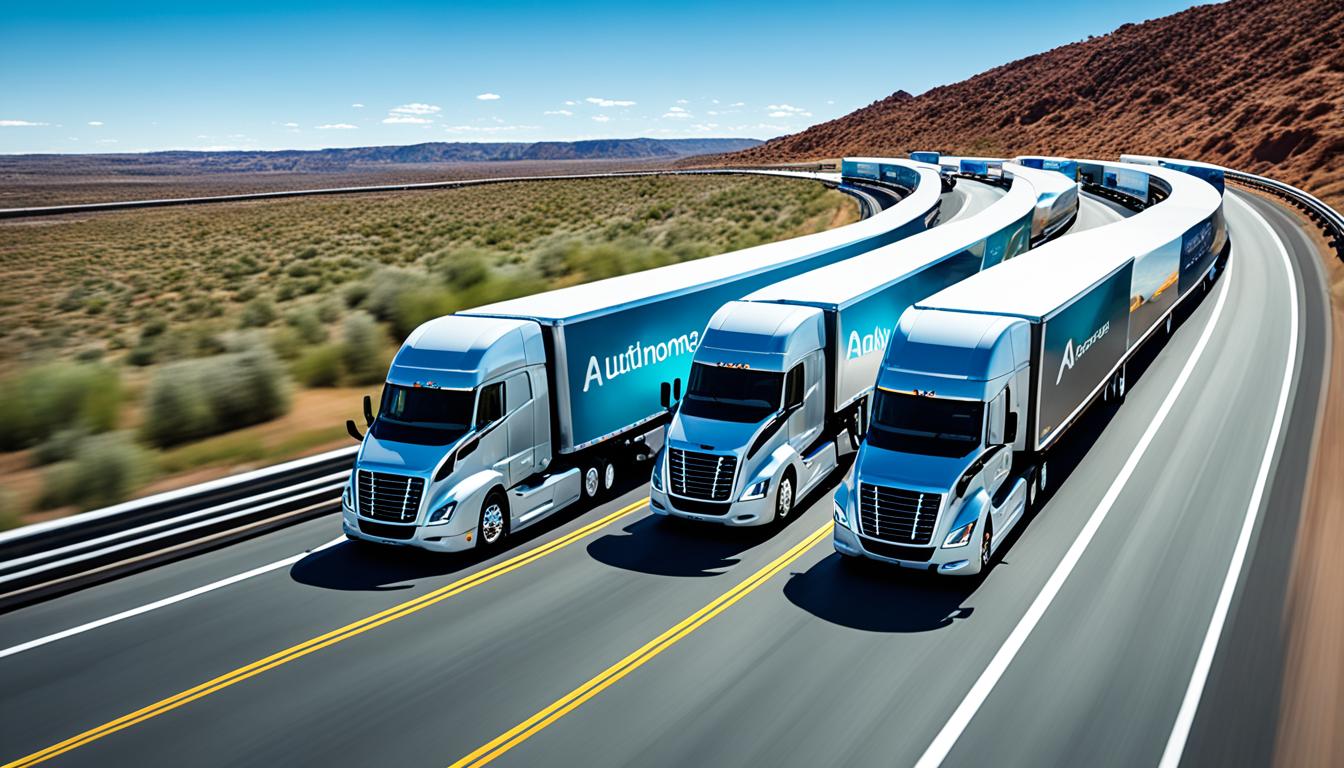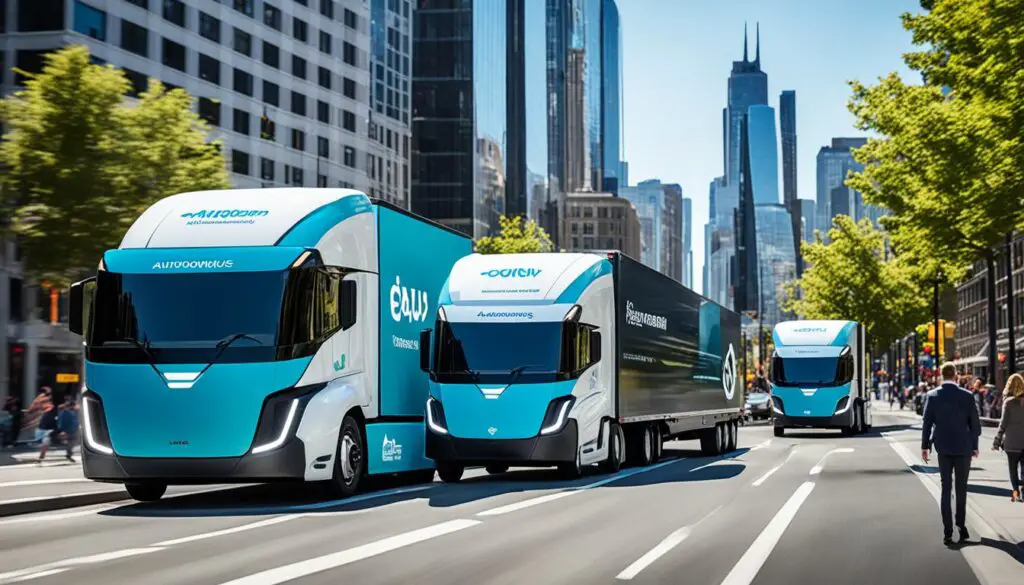
The Road Ahead: Insights into Autonomous Commercial Trucks
The logistics industry is on the cusp of a technological revolution with the emergence of autonomous commercial trucks. These cutting-edge vehicles have the potential to transform the future of transportation and logistics. However, as with any groundbreaking innovation, there are challenges that need to be overcome to fully realize the benefits of autonomous trucks.
One of the key challenges is the development of a robust and safe autonomous technology that can navigate complex road conditions and interact seamlessly with other vehicles and pedestrians. Ensuring the safety and reliability of autonomous trucks is paramount to gaining public acceptance and trust in this evolving technology.
Regulatory hurdles also pose a significant challenge. The laws and regulations surrounding autonomous vehicles need to be updated and adapted to address issues related to operation, liability, and insurance. Clear guidelines and standards will be essential in facilitating the widespread adoption of autonomous commercial trucks.
Despite these challenges, the future of logistics looks promising with autonomous commercial trucks at the forefront. With their potential to enhance efficiency, reduce accidents, and lower costs, these vehicles can revolutionize the way goods are transported.
Key Takeaways:
- Autonomous commercial trucks have the potential to revolutionize the logistics industry.
- Challenges include ensuring the safety and reliability of autonomous technology and overcoming regulatory hurdles.
- The future of logistics looks promising with the potential benefits of increased efficiency, reduced accidents, and lower costs.
Continue reading to explore the potential benefits of autonomous commercial trucks and the challenges that lie ahead in our upcoming sections.
The Potential of Autonomous Commercial Trucks
Autonomous commercial trucks have the potential to bring significant benefits to the logistics industry. According to a report from MIT, autonomous trucks have the potential to increase efficiency in cargo transport by allowing for continuous operation, minimizing the need for driver rest breaks. This can result in increased efficiency, leading to faster and more reliable delivery times.
One of the key advantages of autonomous trucks is the reduced risk of accidents caused by human error. With autonomous technology, the reliance on human drivers is minimized, reducing the chances of accidents and improving overall safety on the roads. This can have a profound impact on the transportation industry by reducing accidents and ensuring smoother and safer operations.
Furthermore, the adoption of autonomous technology can have significant cost-saving benefits for fleet operators. Eliminating the need for driver salaries, benefits, and insurance can lower costs and improve profitability. Additionally, autonomous trucks can optimize fuel consumption, leading to cost savings and a more sustainable transportation system that reduces greenhouse gas emissions.
To summarize, the potential benefits of autonomous commercial trucks are:
- Increased efficiency in cargo transport
- Reduced accidents and improved road safety
- Lower costs for fleet operators
- Optimized fuel consumption and reduced emissions
While the potential benefits of autonomous trucks are significant, there are still challenges that need to be addressed. These challenges include regulatory issues, public acceptance, and ensuring the safety and reliability of autonomous technology. Overcoming these challenges is crucial for harnessing the full potential of autonomous commercial trucks in the logistics industry.

Expert Insight
“The autonomous trucking industry has the potential to transform the logistics landscape, leading to increased efficiency, reduced accidents, and lower costs. However, it is important to address the existing challenges and establish robust systems that ensure safety, reliability, and public acceptance.” – Dr. Samantha Miller, Transportation Analyst
Stay tuned for the next section where we will delve into the challenges of autonomous commercial trucks and explore potential solutions.
Challenges of Autonomous Commercial Trucks
While autonomous commercial trucks show promise, several challenges must be addressed before they can be widely adopted. One major obstacle is the regulatory framework surrounding autonomous vehicles. Laws and regulations regarding operation, liability, and insurance need to be updated and adapted to accommodate autonomous technology.
Public acceptance poses another significant challenge. Many people may be hesitant to trust their safety to autonomous vehicles. Building public trust and confidence in the technology will be crucial for widespread adoption.
Safety and reliability are also critical concerns. Autonomous trucks need to navigate complex road conditions, respond to unexpected situations, and interact safely with other vehicles and pedestrians. Ensuring the safety and reliability of autonomous technology will require rigorous testing and validation processes.
Despite these challenges, the potential benefits of autonomous commercial trucks make them a technology worth exploring and developing further.
FAQ
What are autonomous commercial trucks?
Autonomous commercial trucks are vehicles that can operate without the need for a human driver. They use advanced technologies, such as sensors, cameras, and artificial intelligence, to navigate and transport cargo.
How can autonomous trucks benefit the logistics industry?
Autonomous trucks have the potential to increase efficiency in cargo transport by allowing for continuous operation, minimizing driver rest breaks, and resulting in faster and more reliable delivery times. They can also reduce the risk of accidents caused by human error, lower costs for fleet operators, optimize fuel consumption, and contribute to a more sustainable transportation system.
What challenges need to be addressed for the widespread adoption of autonomous commercial trucks?
One major challenge is the regulatory framework surrounding autonomous vehicles. Laws and regulations regarding operation, liability, and insurance need to be updated and adapted to accommodate autonomous technology. Public acceptance is also a significant challenge, as many people may be hesitant to trust their safety to autonomous vehicles. Ensuring the safety and reliability of autonomous technology is another critical concern, requiring rigorous testing and validation processes.
How can public trust in autonomous trucks be built?
Building public trust and confidence in autonomous trucks will require transparent communication about the technology’s benefits and safety measures. Demonstrating successful real-world applications and highlighting the potential for improved road safety and efficiency can help alleviate concerns and foster public acceptance. Close collaboration between stakeholders, including regulators, industry experts, and the public, can play a significant role in building trust.
What impact can autonomous trucks have on the job market?
The adoption of autonomous trucks may lead to changes in the job market for truck drivers. While some positions may be affected, new opportunities may also arise in areas such as technology maintenance, monitoring, and oversight of autonomous systems. It is important for industries and policymakers to consider the potential impact on the workforce and develop strategies to support affected individuals in transitioning to new roles or industries.
Source Links
- https://kraneshares.com/chinese-auto-stocks-lifted-alongside-li-autos-earnings-beat/
- https://www.wfla.com/bloom-tampa-bay/bloom-relationships/how-to-break-free-of-sexual-shame-and-guilt/
- https://www.kxan.com/news/international/ap-gaza-doctor-says-gunfire-accounted-for-80-of-the-wounds-at-his-hospital-from-aid-convoy-bloodshed/
